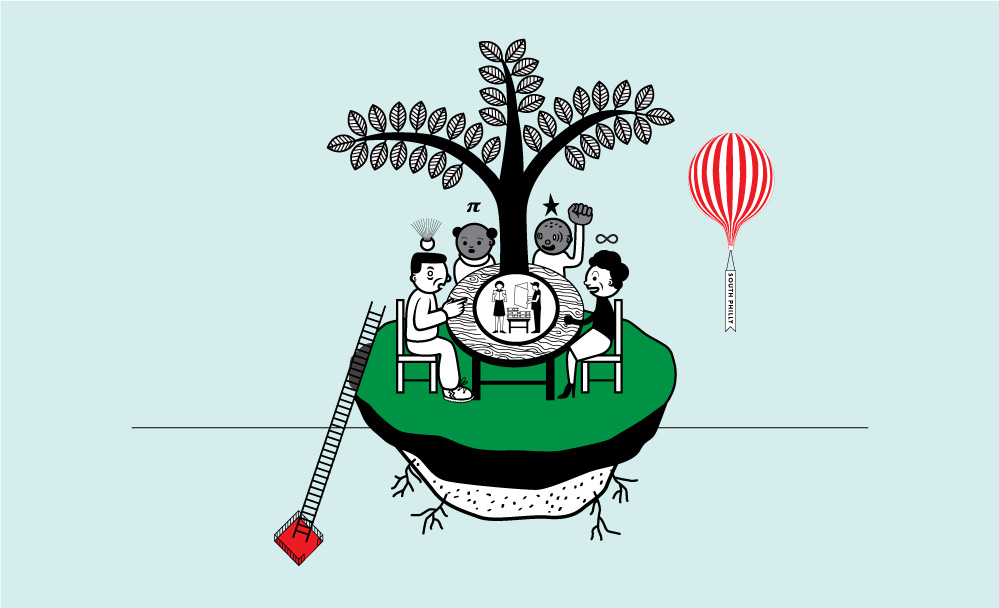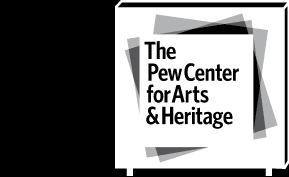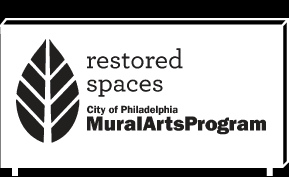
TEAM
COHABITATION STRATEGIES
Cohabitation Strategies (CohStra) is a non-profit cooperative for socio-spatial research, design and development based in New York City, Rotterdam and Ibiza. CohStra was founded in the city of Rotterdam–right after the 2008 financial crash–by Lucia Babina, Emiliano Gandolfi, Gabriela Rendón and Miguel Robles-Durán. Since then, CohStra has initiated operation centers in various cities across Europe, South and North America. Its action research endeavors to facilitate transformative and progressive urban intervention projects. This is undertaken through the active engagement with a range of locally embedded actors from governments, municipalities, cultural institutions, non-profit organizations and civic groups to researchers, artists, designers and independent activists that coalesce around the desire for social, spatial and environmental justice – in short, the Right to the City. Learn more about what we do.
Lucia Babina
Lucia Babina is a cultural activist whose focus is on research and reactivation of sustainable ways of cohabitation and coexistence. Her aim is to reflect on the current global unevenness and injustice by means of collective and artistic process.She is the co-founder of iStrike and iStrike.ultd in Rotterdam, an environmental organization aimed at creating multidisciplinary platforms of analysis, comparison, and international exchange. With iStrike and Strike.ultd she co-produced projects such as: Ars&Urbis International Workshop (Douala, Cameroon, 2007), Salon Urbain de Douala (Douala, Cameroon, 2007), Moving in Free Zones #1 and 2 (Rotterdam, The Netherlands, 2007 and 2009), Talking About! (Rotterdam, The Netherlands, 2009). She is co-author of The Cook, the Farmer, His Wife and Their Neighbour as part of Stedelijk Goes West (Amsterdam, The Netherlands, 2009); Market Academy Naschmarkt as part of Wiener Festwochen (Vienna, Austria, 2010); TheBrantClub as part of Musagetes’ Guelph Program (Guelph, Canada, 2012). Lucia has been giving lectures and producing writing contributions for several international platforms.
Emiliano Gandolfi
is an architect and independent curator, Director of the Curry Stone Design Prize and co-founder of Cohabitation Strategies. Gandolfi was co-curator the 11th International Architecture Exhibition – Biennale di Venezia, and before this role, he was curator at the Netherlands Architecture Institute in Rotterdam. He has curated exhibitions and presented work in numerous international venues including the Tirana Biennial, the International Architecture Biennale Rotterdam, the public art biennale Evento in Bordeaux. He is a co-founder of REbiennale, a cooperative platform created by a net of associations to share methods, processes and competences linked to self-construction. Over the past years Gandolfi has been involved in a wide range of projects, exhibitions and conferences that dealt with methodologies and strategies for urban transformation, on both theoretical and practical levels. He has lectured and organized conferences at many institutions worldwide.
Juan Pablo Pemberty-Jiménez
is a designer, researcher and theory visualizer from Medellín-Colombia. He holds an MA in Design Studies from Parsons, The New School.
Gabriela Rendón
is an architect and urban planner committed to social and spatial justice. Her work combines participatory action research, spatial planning, and strategic design. Neighborhood decline and restructuring are among her areas of expertise, as well as collective and non-speculative property and housing models stimulating development without displacement. Gabriela’s latest study centers on the politics, practices and constraints of socio-spatial restructuring through citizen participation in low-income districts in America and Western Europe. Previous research and design projects focused on immigrant and affordable housing in the northwest Mexican border region. Gabriela is an Assistant Professor of Urban Planning at The New School, in New York City. She instructs diverse courses at the undergraduate Urban Design and Integrated Design Programs, as well as at the graduate program in Design and Urban Ecologies. She has also taught graduate urban studies at Delft University of Technology in the Netherlands, where she received a Master in Urbanism and is currently carrying on doctoral studies at the Chair of Spatial Planning and Strategy.
Miguel Robles-Durán
is an urbanist, professor and lead faculty member of the graduate program in Design and Urban Ecologies at The New School/Parsons in New York and Senior fellow at “Civic City,” a post-graduate design/research program based at the Haute École d’Art et de Design (HEAD) Geneva, Switzerland. Among his direct engagements in the field, he co-directs with David Harvey the National Strategy Center for the Right to the Territory (CENEDET) in the Republic of Ecuador, and he is in the advisory board of The Center for Place Culture and Politics, the National Economic and Social Rights Initiative (NESRI) Right to Housing Program and is research advisor of The Right to the City Alliance. Robles-Durán has wide international experience in the strategic definition/coordination of trans-disciplinary urban projects, as well as in the development of tactical design strategies and civic engagement platforms that confront the contradictions of neoliberal urbanization. His design, research and theory work has been commissioned, exhibited and published in Europe, Asia, North/South America. He co-edited/authored the book Urban Asymmetries: Studies and Projects on Neoliberal Urbanization that reviews the dire consequences that neoliberal urban policies have had upon the city and discusses possible alternatives to market-driven development.
Beth Uzwiak
is an artist and researcher. She has been involved in a range of projects addressing civic engagement and urban change in Philadelphia. Prior work also includes research on the politics of indigenous human rights activism in Central America and health disparities as they result from neoliberal policies. Her current art project investigates the impact of racial discrimination and state violence on social movement mobilization. Uzwiak has held full time faculty positions at American University and Bryn Mawr College where she designed undergraduate and graduate courses and directed student research. She is co-founder of Envision Imprint, a collective of artistic researchers who use sensory ethnography and participatory art methods to address social inequities. Her art and research have been exhibited and published internationally. She holds a Ph.D. in anthropology from Temple University.
THE RESTORED SPACES INITIATIVE OF THE CITY OF PHILADELPHIA MURAL ARTS PROGRAM
The Restored Spaces Initiative is an award-winning model for environmental education and sustainable revitalization of schools, recreation centers and neighborhood corridors, originated and led by Shari Hersh. Restored Spaces works from a model of co-production with multidisciplinary teams of artists, designers and makers, and engages schools, neighborhood stakeholders, and partners to develop a master plan, vision statement and theme that reflects the aspirations and goals shared by all stakeholders. Locating public art, design features and green space in a way that builds coherence within the site and extends into the spatial fabric of the community, Hersh offers people a chance to be leaders for positive change in their communities, rather than passive clients of public and nonprofit services. Restored Spaces works at the intersection of art and design, and has proven an effective way to educate and include audiences about important infrastructure improvements, frame and build dialogue, encourage buy-in for change, and increase long-term stewardship and utilization of public spaces.
The City of Philadelphia Mural Arts Program is a public art organization in Philadelphia. Mural Arts unites artists and communities through a collaborative process, rooted in the traditions of mural making, to create art that transforms public spaces and individual lives. They carry out our mission by annually engaging more than 20,000 people in the creation of 50 public art projects, including 2,000 individuals enrolled in one of our three core programs—Art Education for Youth, Restorative Justice for inmates and those reentering society, and Porch Light for those in treatment for trauma, addiction, or mental illness. Through the liberating, joyful, and open context of artistic co-creation, Mural Arts galvanizes diverse constituencies, gives voice to myriad perspectives, enhances the built environment, and brings visibility to issues in a way that sparks changes in perception and policy.
Julius Ferraro
is a journalist, performer, playwright, and project manager based in Philadelphia. With Mural Arts, he focuses specifically on the Restored Spaces Initiative and Shari Hersh’s community-engaged projects.
Margaret Kearney
is an artist and designer with a background in youth development and environmental activism. She is an FAO Schwarz Family Foundation Fellow hosted within the Restored Spaces Initiative at Mural Arts.
Shari Hersh
is the Senior Project Manager at Mural Arts. Hersh researches and develops innovative projects in the public sphere that mobilize leaders, youth, communities and funders to generate social change and community transformation. Hersh facilitates a collaborative model of practice that emphasizes dialogue and interaction as critical to youth and community voice and the reknitting of social fabric. Her recent efforts focus on socially engaged projects that rely on intense youth and community involvement and interdisciplinary collaborations to address issues such as housing, literacy, and sustainability. Of particular interest are issues of youth representation, participation, and collaboration with artists toward discernible impact.
Lucía Sanromán
is an independent curator and writer. Her work investigates aesthetics in relation to efficacy in social, participatory, and process-based art practice, focusing on the correlation between art history and theory with disciplines outside of the arts. She was Associate Curator at the Museum of Contemporary Art San Diego from 2006-2011. As independent curator, Sanromán was awarded the 2012 Warhol Foundation Curatorial Fellowship and a 2013 Warhol Exhibition Grant for Citizen Culture: Art and Architecture Shape Policy, at the Santa Monica Museum of Art in 2014. Also that year, she curated the retrospective exhibition inSite: Cuatro ensayos de lo público, sobre otro escenario, at Proyecto Siqueiros: La Tallera, in Cuernavaca Mexico, and was co-curator with Candice Hopkins, Janet Dees and Irene Hofmann of SITE Santa Fe’s signature Biennial SITElines.2014: Unsettled Landscapes. Sanromán is an awardee of a The Pew Center for Arts & Heritage Fellowship for 2014 for Playgrounds for Useful Knowledge.
COLLABORATORS
Larissa Begault
is an architect and urbanist. In the past, she has worked on various urban research projects in Santiago and Havana before practicing as an architect for three years in London. Her work focuses on concepts of belonging and alternative notions of citizenship that engender more just, representative and participatory democracy. She recently graduated for the MA Theories of Urban Practice at Parsons, The New School for Design. She is currently working towards a collaborative that develops new methodologies of urban practice challenging systemic exclusion and stratification of the public in urban processes. This work focuses on the various stages and spaces in which the public enters processes of negotiation where public resources are at stake. The practice expands the current discourse on publicity with the primary concern being Multiple Belonging and Difference within such spaces and platforms.
Mariana Bomtempo
is an architect and urbanist who graduated from the University of Brasilia. She has experience working with architecture, interior design, building renovation, graphic design and urban planning in Brasilia, in public and private sectors. As an intern, Bomtempo has worked for the Architecture Department of the University of Brasilia, for the development of the Land Use Law in Brasilia, and for Brasilia-based architecture office Esquadra Arquitetos, where she stayed on as a junior architect. In 2014 started as a junior architect at the Department of Architecture at the House of Representatives in Brasilia, and left upon receiving a scholarship for a Masters Degree in Design and Urban Ecologies at Parsons The New School of Design, with focus on alternatives of urban development for Brazilian cities.
Julia Borowicz
is an urbanist with experience in community planning and nonprofit social justice work. Her work focuses on critical socio-spatial design interventions that engage with issues of representational justice, spaces of inclusion/exclusion and spatial geographies that foster belonging. She is particularly interested in the production of public space as a medium for cultural values, ideologies and subjectivities. She has recently graduated from the MA Theories of Urban Practice at Parsons, The New School for Design. She is currently working towards a collaborative that develops new methodologies of practice challenging systemic exclusion and stratification of the public in urban processes. This work focuses on the various stages and spaces in which the public enters processes of negotiation where public resources are at stake. The practice expands the current discourse on publicity with the primary concern being Multiple Belonging and Difference within such spaces and platforms.
Heidi Chisholm
Heidi Chisholm is a graphic designer that creates bold, tactile and sensory pieces whether it is for marketing, products, fabrics or her own work. She is deeply influenced by her African roots and applies an African thought process to her work, visually and conceptually. She started working in Cape Town and London before co-founding Daddy Buy Me A Pony, which rose to be one of South Africa’s top independent design studios. During this time, she launched the award winning Afro magazine which gained a dedicated international following. In 2008, she moved to New York. In addition to her commercial design work, she co-founded Mr Somebody & Mr Nobody, which makes African inspired domestic curiosities. Chisholm has been published in numerous magazines (including Communication Arts, Print and Elle) and books (including Textiles: The Art of Mankind published by Thames and Hudson), has exhibited in galleries and museums (including the Victoria and Albert Museum in London and the Wolfsonian in Miami) and won several design awards (including Clio, One Show and D&AD).
Rachael Griffith
is a Pennsylvania-registered landscape architect who received her bachelor’s degree in Landscape Architecture from Temple University in 2011. While obtaining her degree she worked at several public gardens assisting with garden maintenance and construction, trail work, and garden interpretation including leading tours and creating educational materials.
Troy Andrew Hallisey
is an urban ecologies specialist and a GIS and geo-web developer and designer. Hallisey has had the opportunity to consult with several local and international community groups to develop strategies aiming for cooperative development and community engagement. He is currently in Geneva, Switzerland working at the United Nations Office for the Coordination of Humanitarian Affairs (OCHA) as data scientist and intern in the Field Information Services section. In 2014, he graduated from the groundbreaking M.S. Design and Urban Ecologies program at The New School’s Parsons School of Design, where he focused on issues pertaining to affordable housing and cooperative economic development models in New York City. In addition, Hallisey received a B.A. in Sociology from the University of Connecticut, and a B.F.A from the University of Rhode Island with concentrations in printmaking and digital design.
Dr. Maria Rosario Jackson
Dr. Maria Rosario Jackson’s expertise is in comprehensive community revitalization, systems change, the dynamics of race and ethnicity and the roles of and arts and culture in communities. She is Senior Advisor to the Kresge Foundation and consults with national and regional foundations and government agencies on strategic planning and research. In 2013, with U.S. Senate confirmation, President Obama appointed Dr. Jackson to the National Council on the Arts. She is on the advisory board of the Lambent Foundation and on the boards of directors of the Alliance for California Traditional Arts and LA Commons. Dr. Jackson has taught courses in Urban Planning and Cultural Policy at Claremont Graduate University, the University of California, Los Angeles and the University of Southern California. Previously, for almost 20 years, Dr. Jackson was based at the Urban Institute, where she led pioneering research on arts and culture indicators, measuring cultural vitality, the role of arts and culture in community revitalization, development of art spaces, and support systems for artists.
The LandHealth Institute
The LandHealth Institute’s mission is to markedly improve the health of land–including its biodiversity health, its aesthetic health, its human health, and its functional health–through targeted education at all levels, directed study and research, practical application, relevant publication, improvement of unhealthy land, and programs that instill land health awareness within all.
Philadelphia Theatre of the Oppressed (T.O. Philly)
is a network of people using the tools of theatre and popular education to dismantle oppression. Much of what we do is based on the work of Augusto Boal, who developed the Theatre of the Oppressed in Brazil over 50 years ago, and we offer classes, workshops and trainings for groups in Philadelphia and elsewhere. In 2015 T.O. Philly became part of Playgrounds for Useful Knowledge in South Philly by facilitating games and presenting theatrical images as a way to start and deepen conversations about the neighborhood. Our team of actor-facilitators includes Calia Marshall, Hariprasad Kowtha, Jessica Johnson, Mason Rosenthal, Mika Taliaferro, Morgan Andrews, Paloma Irizarry and Pratima Agrawal.
Scott Quitel
is the founder of LandHealth Institute. Quitel has extensive experience in ecologically based master planning and land use planning, ecological analysis and restoration guidance, ecological landscape design and construction, and education focused on ecological analysis, design, and planning.
Lee Wolf
Zurich-born, about-to-be Cultural Anthropology student Lee Wolf loves working with different people and is very interested in art. So far in her life she’s graduated, worked and traveled some. She is happy to be supporting this project by getting in touch with different organizations via Facebook and being present on the site of the Playground for Useful Knowledge.


